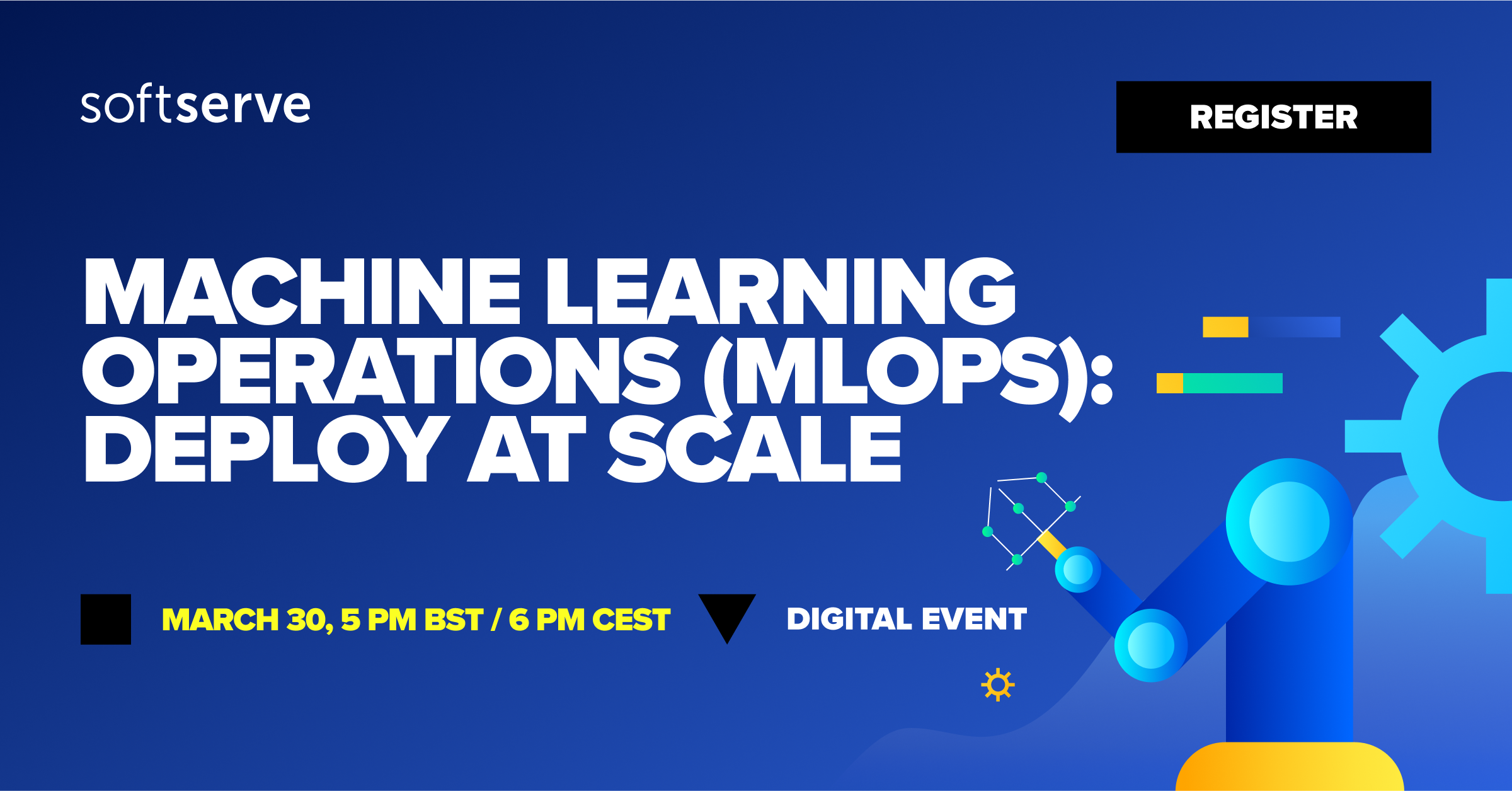MLOps: Bridging the Gaps That Prevent Digital Transformation
Successful organizations depend on cooperation between business segments that usually don’t speak the same language. Data scientists, for example, may not be in sync with operations or production. Consider the time and resources saved if each of these groups acted within their core competency, but all spoke a shared language focused on efficiency.
If time to market and innovation are measures of success, finding that commonality is crucial. A growing number of companies—from startups to enterprises—are achieving this with machine learning operations (MLOps).

WHAT IS MLOPS?
MLOps is a set of practices that improve communication and collaboration between data science and IT/Ops teams. It enables fast and timely delivery of machine learning-enabled solutions without compromising quality. In a modern data-driven and rapidly changing world, machine learning (ML) is necessary for businesses to stay relevant and competitive. MLOps is the next evolutionary step.
MLOps harnesses insights from ML and fosters collaborative communication between data scientists and the operations or the production team. Here’s why it’s essential: MLOps keeps the focus on business interests. MLOps is the bridge between your operations team’s business knowledge and the data maintained by your scientists. Operationalizing data using machine learning transforms insight into actionable business value. It has an impact on your bottom line.
GETTING AHEAD OF YOUR COMPETITION
MLOps enables fast development and deployment cycles for ML-based services. Businesses quickly deliver new ideas to customers because these ideas are tested in a transparent environment.
While some consider MLOps an emerging technology, market leaders that already use MLOps-enabled processes and solutions report higher margins than the market average.
MLOPS IN ACTION
SoftServe’s client, one of the world’s largest energy companies, wanted to adopt ML into their asset monitoring and maintenance pipelines. The challenge was the ability to monitor hundreds of thousands of components in their operational environments. This process generated vast amounts of data and made manual analysis impossible.
By employing MLOps best practices, the enterprise deployed a solution capable of operating at scale and significantly lower maintenance costs than traditional solutions. There was a clear business outcome.
MLOPS BEST PRACTICES
Focus on these key areas when considering MLOps for your organization:
- Productivity - Providing self-service environments with access to curated data sets allows data engineers and data scientists to waste less time with missing or invalid data.
- Repeatability - Automating the steps in machine learning data catalogs helps you ensure a repeatable process. This includes consistency in how the model is trained, evaluated, versioned, and deployed.
- Reliability - Incorporating continuous integration and delivery practices allows quick deployment with increased quality and consistency.
- Auditability - Versioning inputs and outputs—from data science experiments to source data to trained model—demonstrates how a model is built and where it is deployed.
- Data and model quality - MLOps reinforce policies that guard against model bias. It will track changes to statistical properties and model quality over time.
- Ease of testing and monitoring – Results from development and live operation are incorporated into your model’s next iteration cycle.
GETTING STARTED WITH MLOPS
Successful implementation of MLOps works best in a company culture where data scientists and operations teams share a vision and understanding of ML-based solution development. Join our upcoming event and discover how to become an MLOps advocate for your organization.
Be prepared for these challenges as you introduce MLOps:
- Scaling AI/ML experiments requires complex engineering with multiple components, iterations, and steps.
- Delivering models to production needs well-established processes and workflows.
- ML introduces new challenges for the traditional software development lifecycle and continuous integration/continuous delivery lifecycles.
- Difficulty navigating the complex landscape of ML tools, frameworks, and accelerators available for integration.
- Verifying the high data quality required for ML workloads across multiple and diverse data sources.
- Driving cooperation among multiple teams and stakeholders.
- Constant monitoring of production ML deployments for quality control and the ability to debug critical issues.

Even with these challenges, MLOps implementation provides enormous value to an organization. Intelligent automation such as MLOps accelerates business efficiency, giving your organization a competitive advantage. With decades of experience building cornerstone solutions for MLOps, the SoftServe team has a unique combination of skills and experience. We will streamline the adoption of MLOps and support your company every step of the way. You’ll boost operational efficiency, amplify cost savings, and optimize workforce productivity.
Learn more about the potential of MLOps for your organization. Attend our upcoming digital event, “Machine Learning Operations (MLOps): Deploy at Scale.”

Read more:

